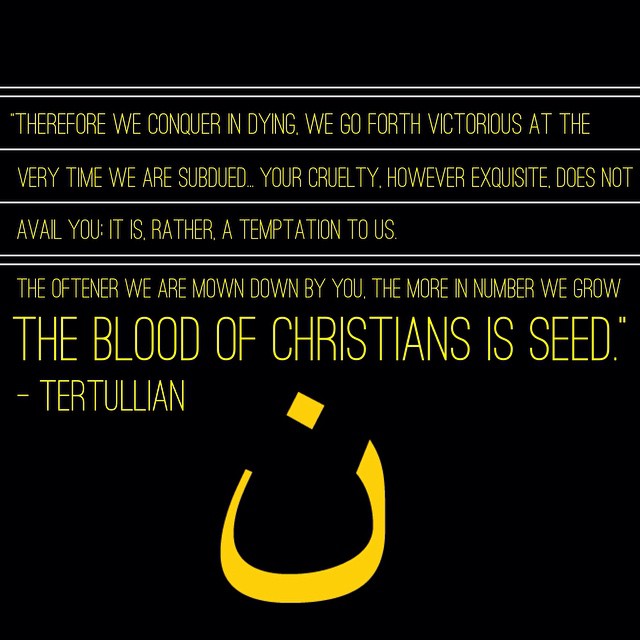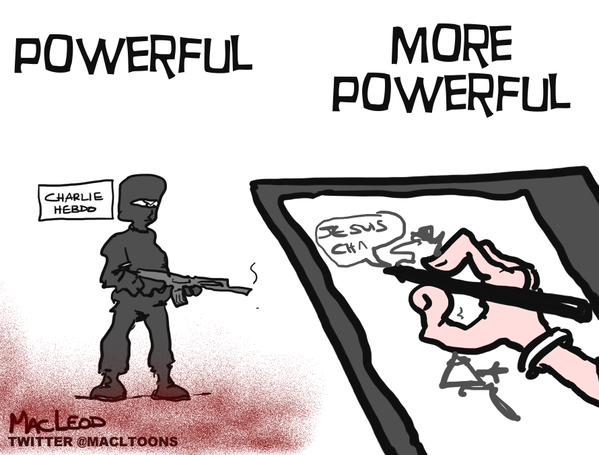
I’ve loved Leonard E. Read’s I, Pencil since the first time I read it. I’ve been struck recently that the crucifixion of Jesus was much more complicated to orchestrate than a simple pencil. These words from Peter, in Acts, have been bouncing around in my head (along with John calling Jesus the “lamb slain before the creation of the world” in Revelation.
“This man was handed over to you by God’s deliberate plan and foreknowledge; and you, with the help of wicked men, put him to death by nailing him to the cross.” — Acts 2:23
Some of the below either borrows, or quotes, I, Pencil. Which you should read for this to make as much sense as possible (though it should work without that).
I am the crucifix. Those two wooden planks, fixed together in the shape of the letter t, a symbol familiar to boys and girls and adults throughout the world. A symbol of hope. Affixed to hospitals, churches, and flags. Carried into battle, marking the resting place of the fallen. I am the world most recognised, most powerful, most confused, brand.
I am simultaneously wondrous, and cursed, celebrated and condemned, wisdom and foolishness, power and weakness, honour and humiliation, love and loathing, an instrument of justice and of mercy. I am both physical, and symbolic. I was made to bring darkness and death, but now represent light and life. I do these things, and more. I am taken up in service of many causes, and cause many acts of service.
I am where the triune God, who created the world wrote his signature on the earth, in blood. I am the canvas for a divine masterpiece where His image was held up, writ large, for all to see.
I am the scene of the culmination of his carefully orchestrated plans for his world.
I am so significant that the books written about me could fill a library, and the pieces of me held in churches around the world as relics could fill a ship. Yet nobody knows what tree became me.
You may wonder why I should write a genealogy. Well, to begin with, my story has transformed the history of the world. And yet, I am a mystery, more than a pencil, a sunset, a flash of lightning, or even the cosmos itself. Sadly, I am taken for granted, as if I were a mere incident, and without background. This supercilious attitude relegates me to the level of the commonplace. This is a species of the grievous error in which mankind cannot too long persist without peril. For the wise G.K Chesterton observed, “We are perishing for want of wonder, not for want of wonders.”
I, Crucifix, simple though I appear to be, merit your wonder and awe, a claim I shall attempt to prove. In fact, if you can understand me—no, that’s too much to ask of anyone — if you can become aware of the miraculousness which I symbolize, you can help save the freedom mankind is so unhappily losing. I have a profound lesson to teach. And I can teach this lesson better than can an automobile, or an airplane, or a mechanical dishwasher, or even a pencil, because—well, because I am seemingly so simple.
Simple? Yet, not a single person on the face of this earth knows how to make me. This sounds fantastic, doesn’t it? Especially when we see that Rome once crucified 6,000 slaves at once, hung on crosses just like me, planted on the Via Appia.
Ponder me. A stauros. A cross. Consider my stipes and patibulum. The post and bar. Two planks of simple timber. Fixed together. What do you see? Not much that meets the eye. A few metres of hardwood. Splintered and bloody. Stipes implanted in the ground. Reused for victim upon victim. Some ropes. Some pegs and nails. I am physical, and yet symbolic. I have been emblematic for various causes through history, from warriors to medics, from haters to lovers. As an instrument of death in the hands of the Roman Empire I evoked horror, and humiliation, the very people who employ me most are terrified of my power — the orator Cicero insisted Roman citizens should not be confronted with the barbarity of even my name.
Just as you cannot trace your family tree back very far, so is it impossible for me to name and explain all my antecedents. But I would like to suggest enough of them to impress upon you the richness and complexity of my background.
My family tree may seem, simply and literally, to begin with a tree; a cedar, an olive, or a fig tree, a tree of unknown species, grown somewhere around Jerusalem. Perhaps even the mystical dogwood — though unlikely. I grew from seed, sprouted, shot upwards, branched out, before being felled by an axe and stipped of branch and bark, turned to timber. My construction might seem simple. Two logs held together, and my victim affixed, by spike and rope. You may wish to contemplate the axes, rope, horses and carts, and countless other tools used in harvesting and carting logs to Golgotha and the barracks. Think of all the persons and the numberless skills that went into their fabrication: the mining of ore, the making of iron and its smithing into axe heads and blades, the growing of nile grass and bringing it through all the stages to heavy and strong papyrus rope; the logging camps with their beds and mess tents, the slaves and soldiers overseeing the work, the cookery and the raising of all the foods to feed these mouths. Why, untold numbers of persons had a hand in every cup of wine the soldiers drink, and every piece of armour they wear! Timber was scarce in Jerusalem so my upright pole, my stipes, remained rooted, planted, at the place of the skull, while my victims bore the patibulum from their trial to their deathly destiny.
Don’t overlook the ancestors present and distant who have a hand in creating me, not simply my physical reality, but my meaning.
My origins may seem arboreal, and, indeed, corporeal, and yet, it is the ethereal, symbolic sense of my significance that is where my family tree truly begins. Erected, as I was, in Jerusalem, I carry the stench of a curse for the Hebrew, and the aroma of abasement for the Roman. These odours were cultivated by years of tradition and practice. My ancestors were creations of Darius I of Persia, and employed by Alexander the Great. The Romans perfected my use and made me the most despised symbol in all the world — 6,000 slaves, the army of Spartacus, were once nailed to my predecessors and dotted liberally, one every 33 metres, along the Appian Way, a bloody road map to Roman supremacy. Dionysius of Halicarnassus in book VII of his Roman Antiquities from 7 BC, described the path an individual would take on his journey to death on the wooden arms of my forefathers…
“A Roman citizen of no obscure station, having ordered one of his slaves to be put to death, delivered him to his fellow-slaves to be led away, and in order that his punishment might be witnessed by all, directed them to drag him through the Forum and every other conspicuous part of the city as they whipped him, and that he should go ahead of the procession which the Romans were at that time conducting in honour of the god. The men ordered to lead the slave to his punishment, having stretched out both his arms and fastened them to a piece of wood which extended across his breast and shoulders as far as his wrists, followed him, tearing his naked body with whips. The culprit, overcome by such cruelty, not only uttered ill-omened cries, forced from him by the pain, but also made indecent movements under the blows.”
Observe my function, and my meaning. I am a well-honed instrument of humiliation and torture, the end of a torturous road for the accursed. Those designated as less than nothing in the eyes of the world. I am an instrument of death, and a symbol of power.
“Whenever we crucify the condemned, the most crowded roads are chosen, where the most people can see and be moved by this terror. For penalties relate not so much to retribution as to their exemplary effect.”—Quintilian, Declamation 274, The Tyrant Struck By Lightning.
For the Jews, I am anathema. Moses proclaimed that one hung, executed, upon a tree, a tree like me, was accursed by the living God. By the time Rome occupied Israel, death on a tree was a special punishment for traitors — those who sold Israel out to foreign powers, the Temple Scroll discovered amongst the Dead Sea Scrolls, says:
“If a man slanders his people and delivers his people to a foreign nation and does evil to his people, you shall hang him on a tree and he shall die. On the testimony of two witnesses and on the testimony of three witnesses he shall be put to death and they shall hang him on the tree. If a man is guilty of a capital crime and flees to other nations, and curses his people, the children of Israel, you shall hang him also on the tree, and he shall die. But his body shall not stay overnight on the tree. Indeed you shall bury him on the same day.” —11QT Temple Scroll LXIV
My history, my family tree, as it were, the origin story behind my significance began even earlier than the practice of crucifixion.
It was no accident that my symbolic was turned upside down, that the Cross became a symbol of glory, and hope, of life, rather than death. It was part of a plan.
A plan that began with two other trees — a tree that brought life, and a tree that brought death. God’s plan to destroy evil, and his promise to crush the Serpent. Satan. A promise centred on the “lamb slain before the creation of the world”— the Lamb, the Son, whose hands flung stars into space and hold heavens and earth together.A plan that would see those hands skewered with odious spikes, on a cursed tree. His feet pierced, his side lanced.
The events that took place, painted in blood on my splintered canvas, were planned from the very beginning, even from before the creation of the world. It was no accident that the divine son of God, the Son of Man, found his arms affixed to mine, it was no accident that those looking on at these events hurled insults — they could do no less. It was no accident that the child of promise arrived at a time in history when I stood tall as a symbol of human power. The symbol that best represented the might of the god-kings of Rome, and their superiority over any who claimed to oppose their right to rule. It was no accident that Jesus was tried as a traitor by both Jews and Romans, and sentenced to an exemplary, cursed death. For many before him, I was a final resting place, corpses were left to rot on my cruel axis. But not for this one. And from this moment on, the fabric of the world was torn asunder, this rending of the heavens, itself, symbolised in the tearing of the Temple curtain, with this shattering of what was, and re-creation of what is, my significance was inverted. The curse reversed.
Does anyone wish to challenge the assertion that no single person on the face of this earth knows how to make me?
Actually, millions of human beings have had a hand in my creation, no one of whom even knows more than a very few of the others. Indeed, every human hand that has been and will be — hands raised in rebellion against God — play a part in holding the divine Son’s hands to my boards, to holding me together at the centre of history. Every life gives significance to my promise of judgment or mercy. Judgment for the death of the Son, or mercy bought by the blood spilled into the grains of my beams, and on to the earth beneath.
Here is an astounding fact: Neither the Romans who appointed me to my task, nor the Jewish crowd who looked on, not the governor, the timber workers, the soldiers, the quartermaster, the slave, the high priest, the Pharisees or teachers of the law, nor even those hung on my contemporaries on Golgotha, know how I came to be, nor wanted me, or wanted to understand my significance. Certainly I do not occupy the same place in their life, or those lives that came after me, that I do in space and time, or in God’s plans. The motivation of these people is other than me.
Perhaps it is something like this; when people are at last confronted with my significance and place in the plans of the God who orchestrated space and time such that his own shoulders rested on my wood, they are left wanting my significance to be their significance, their motivation, perhaps, at this point shifts, so I am the symbol they take up in order to live and know life.
The master-mind at the heart of my story, my creation, is astounding. The strings of history pulled, twisted, laid out and brought together in my being, and doing, are the product of an invisible hand at work. Not the work of an apprentice, but a virtuoso.
It has been said that “only God can make a tree.” Why do we agree with this? Isn’t it because we realize that we ourselves could not make one? Indeed, can we even describe a tree? We cannot, except in superficial terms. We can say, for instance, that a certain molecular configuration manifests itself as a tree. But what mind is there among men that could even record, let alone direct, the constant changes in molecules that transpire in the life span of a tree? Such a feat is utterly unthinkable! If this is true of any tree — how much more of this tree. The tree at the centre of the universe?
I, Crucifix, am a complex combination of miracles: wood, rope, metal and so on. But to these miracles which manifest themselves in Nature an even more extraordinary miracle has been added: the configuration of creative human energies and co-ordination of human history, superstition, culture, and power structures — millions of tiny know-hows configurating naturally and spontaneously in response to human desire and in the absence of any human master-minding! Since only God can make a tree, I insist that only God could make me. Man can no more direct these millions of know-hows to bring me into being than he can put molecules together to create a tree.
The above is what I meant when writing, “If you can become aware of the miraculousness which I symbolise, you can help save the freedom mankind is so unhappily losing.” For, if one is aware that I sit at the heart of divine creativity, that I am the backdrop for the divine drama writ large in history, authored and orchestrated from the beginning of life in this world, then one will possess an absolutely essential ingredient for freedom: faith in God. Freedom is impossible without this faith.
If I, Crucifix, were the only item that could offer testimony to what God accomplishes by divine creative expression, then those with little faith would have a fair case. However, there is testimony galore; it’s all about us and on every hand. Sunrise, sunset, the cosmos itself and its beauty is a testimony. The best of our humanity — love, the creation of relationships, life, art, and complex systems that enhance these things. Our co-creativity, our ability to write and appreciate stories, to bring threads together, woven into rich tapestries. The production line for apparently simple devices, like the pencil. The creation of supply chains. Human ingenuity and problem solving as a reflection of the divine nature.
Why, in this area where men have been left free to try, they deliver the human voice around the world in less than one second; they deliver an event visually and in motion to any person’s home when it is happening; they deliver 150 passengers from Seattle to Baltimore in less than four hours; they deliver gas from Texas to one’s range or furnace in New York at unbelievably low rates and without subsidy; they deliver each four pounds of oil from the Persian Gulf to our Eastern Seaboard—halfway around the world—for less money than the government charges for delivering a one-ounce letter across the street!
The lesson I have to teach is this: Let the event at the centre of the world shape life in it. Take up your cross and follow the one whose hands were nailed to my arms. Merely organise society— starting with your own life— to act in harmony with this lesson. Have faith that free men and women will respond to the Invisible Hand. This faith will be confirmed. I, Crucifix, seemingly simple though I am, offer the miracle of my creation as testimony that this is a practical faith, as practical as the sun, the rain, a cedar tree, the good earth.






